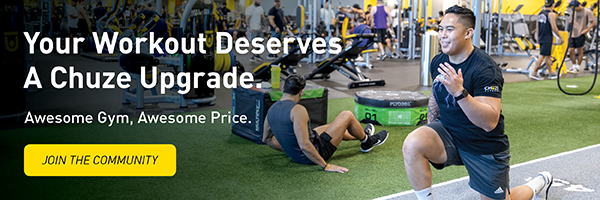Physical Address
304 North Cardinal St.
Dorchester Center, MA 02124
Physical Address
304 North Cardinal St.
Dorchester Center, MA 02124

There's nothing like the feeling of a hard workout. The same can be said for the pain that comes after. But that soreness is a good thing — a sign of muscle growth — and it can be hard to stay on the sidelines.
Is it possible to speed up the recovery process and return to training sooner?
The quick answer is yes! From hydration and nutrition to stretching and sleep, science-backed strategies will speed up your recovery and turn post-workout sweat into fresh energy.
That said, everyone's fitness goals and training styles are unique, so you need to find an approach that works for you. Read on to find out how you can do this.
True recovery is about more than muscle soreness; It's a complex process that affects your overall fitness development.
This is because rest and recovery are linked to:
Whether you're an elite athlete or a weekend warrior, post-workout recovery is a must for everyone. So how can you maximize the potential (and minimize the duration) of this vacation?
Like a high-performance machine, your body relies on several key processes to function at peak efficiency and recover from heavy use.
Let's examine five of these processes:
Proper hydration is critical to every bodily function, and recovery is no exception. Intense exercise depletes your body of water and electrolytes through sweat, meaning you need to replace those lost fluids in order for your muscles to fully recover.
Aim to drink water consistently throughout your workout day, not just during and after exercise. For particularly intense workouts lasting several hours, consider sports drinks to replenish electrolytes—just be mindful of the sugar content to match your fitness goals.
Just as the right fuel keeps your machine running smoothly, your body needs the right balance of nutrients to facilitate recovery. Here's a quick list of the best foods for pre- and post-sport recovery:
These ingredients are fast recovery and long term fitness builders. Fueling your body in the right way is important to get the most out of your training.
Just like any well-maintained machine needs rest, your body relies on rest to repair and rebuild after intense activity. Sleep is where most of the magic happens, producing growth hormones that help:
Aim for 7-9 hours of solid, consistent sleep each night. If you're feeling especially tired after a workout, a quick 20 to 30 minute nap can give you the recharge you need. Just be careful about taking too long naps, as this can disrupt your normal sleep schedule.
While machines require a total rest period after heavy use, the human body grows differently Active Recovery – low-intensity activities that increase blood flow and help improve muscle growth without overloading.

Some effective recovery strategies include:
As counterintuitive as it may seem, incorporating these activities into your routine can lead to faster post-workout recovery.
Of course, you always want to listen to your body and not overdo it. So, don't be afraid to take a day off if you feel like it's too much.
Tools like foam rollers and massage guns are fantastic ways to release muscle tension and improve circulation.
Whether you're starting a new routine or increasing the intensity of an old one, these tools are invaluable. Thanks to modern technology, muscle pain can be effectively treated in the following ways:
These are just a few of the many options that promise to speed up muscle recovery.
But a word of caution: It's best to do more research and consult with your doctor before incorporating too many self-medication strategies into your routine. Every body – and every muscle in that body – is unique, so make sure the treatments you choose are tailored to you yours interests.
Again, no two entities are exactly the same. And the specifics of your recovery routine are highly dependent on your body, your exercise schedule, and your fitness goals. So how do you find your ideal routine?
There are a few ways:
It can take time and experimentation to find the right recovery process for your body.
Instead of going full throttle with your recovery efforts, look for something you can sustain for the long term. So, adjust and test as needed. With a little time and commitment, you'll be on your way to recovery faster, smarter, and at a pace that's perfect for you.
It's not just what you do in the gym that builds strength; How to recover issues. But recovery doesn't mean sitting out your next session.
Balancing important things like hydration, nutrition and sleep with targeted strategies can help speed up the healing process, getting you back to the gym faster.
And with gyms like our Chuze Fitness centers I wouldn't have done it. Want to return quickly?
Chuz supports your workout and recovery with fully equipped accessories. Soothe aching muscles with a soothing hydromassage, cool off in a CryoLounge chair or relax with a red light treatment with Chuze Blend's post-workout smoothie.
Try a free 7-day membership trial to see for yourself.
Sources:
Houston Methodist. Why exercise recovery is important and 3 tips for doing it right. https://www.houstonmethodist.org/blog/articles/2021/apr/exercise-recovery-why-its-important-and-3-tips-for-doing-it-right/
Health line. Should you be drinking sports drinks instead of water? https://www.healthline.com/nutrition/sports-drinks
Health line. Should you have a protein shake before or after your workout? https://www.healthline.com/nutrition/protein-shake-before-or-after-workout
Health line. Is it normal to fall asleep after exercise? https://www.healthline.com/health/healthy-sleep/sleep-after-workout
Houston Methodist. Why exercise recovery is important and 3 tips for doing it right. https://www.houstonmethodist.org/blog/articles/2021/apr/exercise-recovery-why-its-important-and-3-tips-for-doing-it-right/
UPMC Advantages of Compression Gear. https://share.upmc.com/2016/01/benefits-of-compression-gear/
Daily health. Post-Exercise Muscle Recovery: How Your Muscles Can Heal and Why. https://www.everydayhealth.com/fitness/post-workout-muscle-recovery-how-why-let-your-muscles-heal/
 Reviewed by:
Reviewed by:
Annie is the Vice President of Fitness at Chuze Fitness and oversees the Group Fitness and Group Training divisions. She has a 25+ year career in club management, personal training, group fitness and coaching. Annie lives in San Diego, CA with her husband and daughter and enjoys hot yoga, skiing, and all things wellness.